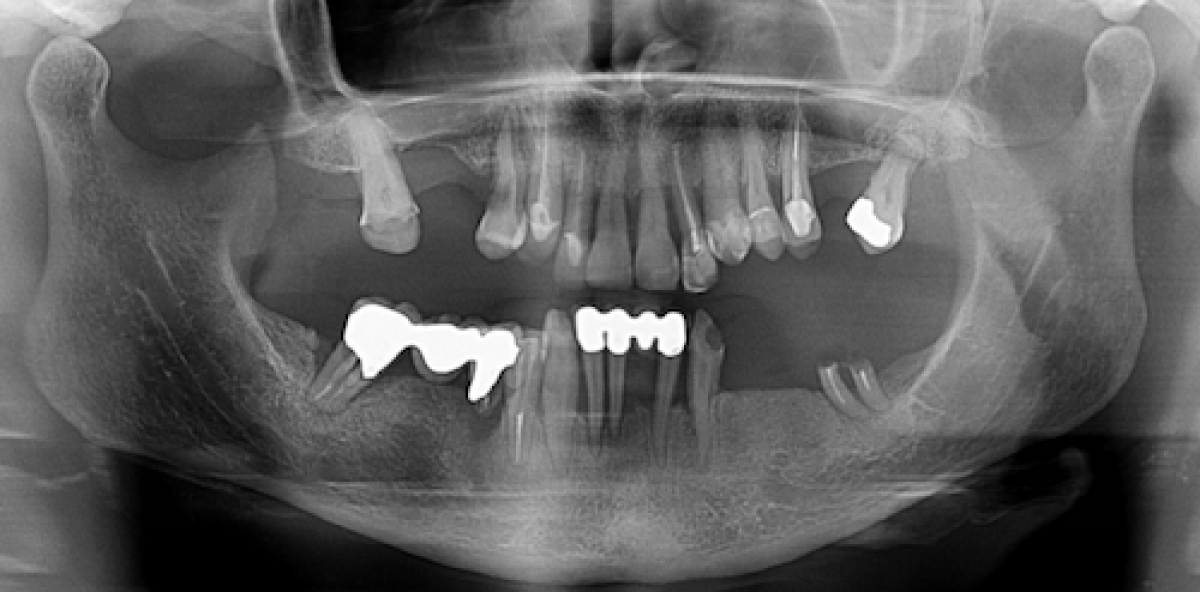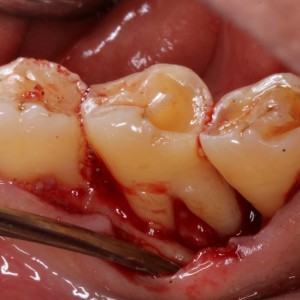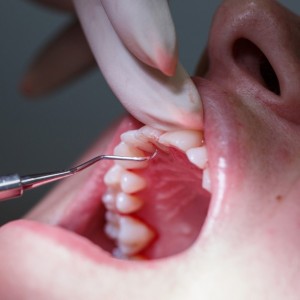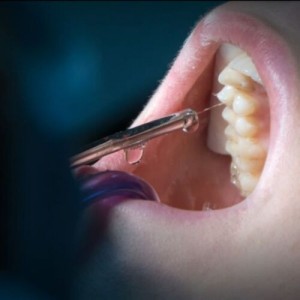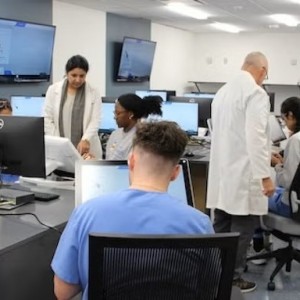
Oral hygiene and periodontitis: is flossing the solution?
Alessandra Abbà
Good hygiene practices are universally recognized essential factors for oral health, and flossing is considered an indispensable part of an effective oral hygiene routine. Nevertheless systematic reviews and meta‐analyses of randomized controlled trials give controversial results.
Periodontitis is a common chronic condition characterized by inflammation and loss of the supporting tissues around the teeth and it is a major cause of tooth loss. Development of periodontitis has been associated also with increasing age, being male, low economic status, frequency of visits to the dentist, smoking and alcohol consumption. Nonetheless dental plaque is the major cause of gingivitis and periodontitis. The composition of the plaque microflora changes over time due to a series of complex interactions and microbial succession.
Mechanical removal of the inter‐proximal plaque, by using floss, may be sufficient to stop the microbial succession process, that is associated with inflammation and disease initiation. A cross‐sectional study published on Journal of Clinical Periodontology in 2017 tried to examine the association between flossing and periodontitis.
MATERIALS AND METHODS
This cross‐sectional study uses the National Health and Nutrition Examination Survey (NHANES) years 2011‐2014. Authors included in this study subjects 30 aged and older who underwent a periodontal examination (based on measurements of attachment loss and pocket depth) and responded to the question about frequency of flossing. Based on the answers, three categories were identified: from 0–1 day, 2–4 days and 5 or more days in the past week. Odds ratios controlling for age, gender, smoking, drinking, income and dentist visits were calculated. In order to analyze the association between flossing and periodontitis, a logistic regression was built and unadjusted and adjusted odds ratios (ORs) were calculated. The variables were flossing frequency, age, gender, smoking, drinking and frequency of visits to the dentist. To address the question of the association of no flossing with periodontitis, two flossing categories were created: no flossing at all in the previous week and flossing at least once in the previous week.
RESULTS
A total of 6939 adult subjects were included. Of these subjects, 35% flossed no more than once in the past week. Men, younger subjects, current smokers, subjects with the lowest incomes and subjects who rarely visited a dentist flossed less frequently. 40% of the subjects had periodontitis. A higher percentage of subjects who flossed no more than once a week had periodontitis compared with subjects who flossed more often.
After adjustment, the odds of periodontitis were 17% lower for subjects who flossed >1 time a week than for subjects who flossed less often (odds ratio=0.83, 95% CI 0.72–0.97).
After adjustment for established risk factors and flossing, it was found that men are twice as likely as women to have periodontitis. Compared with subjects age 30–49, older subjects had higher odds of having periodontitis. For example, subjects 65 or older had three times the odds. Non‐smokers and former smokers had lower odds of having periodontitis than current smokers. The odds are 69% lower for non‐smokers than current smokers. Nonetheless former drinkers had higher odds of having periodontitis, compared with current drinkers. The odds of having periodontitis were 70% lower in subjects with the highest incomes than the lowest income. Visiting a dentist within the last year was associated with lower odds of having periodontitis, compared with subjects who never or rarely visit a dentist. The analyses in which the reference category was no flossing at all (instead of flossing no more than once a week) provided similar results. Compared with no flossing at all, flossing 1 or more days a week reduced the odds of having periodontitis by 23%.
CONCLUSIONS
This population‐based, observational study found that flossing was associated with a lower prevalence of periodontitis; a series of variables such as older age, being male, smoking, low income and less frequent dental visits are associated with a higher prevalence of periodontitis. Nonetheless, the benefit of flossing has been verified. This is a cross‐sectional study so a causal relation between flossing and periodontitis cannot be established.
For additional informations:
Association of flossing/inter‐dental cleaning and periodontitis in adults
 Related articles
Related articles
Periodontology 01 December 2025
Ceramic abutments--a new era in achieving optimal esthetics in implant dentistry.
In the visible dental region in particular, implant-prosthetic restorations filling single-tooth gaps make exacting demands on function and esthetics.
Periodontology 14 November 2025
This study was carried out to assess the oral hygiene awareness and practices amongst patients visiting the Department of Periodontology at Gian Sagar Dental College and Hospital, Ramnagar (Patiala).
Periodontology 30 October 2025
To update the competences and learning outcomes and their evaluation, educational methods and education quality assurance for the training of contemporary specialists in periodontology
Periodontology 10 October 2025
Continuous professional development (CPD) in Periodontology refers to the overall framework of opportunities that facilitate a life-long learning practice, driven by the learner-practitioner and...
Periodontology 10 September 2025
To update the findings of a systematic review from the year 2016 on the evidence for the accuracy and potential benefits of cone beam computed tomography (CBCT) in periodontal diagnostics.
 Read more
Read more
Endodontics 13 January 2026
Regenerative endodontic treatment has provided a treatment option that aims to allow root maturation.
Editorials 13 January 2026
Pitt’s New Digital Dentistry Labs to Provide State-of-the-Art Education and Patient Care
Three new dentistry labs at the University of Pittsburgh School of Dental Medicine will give students and residents hands-on experience with cutting edge digital dental technology while providing...
Products 13 January 2026
Revolutionizing Pediatric Dentistry with Dr. Josh Solomon: SDI Stela & Bioclear Insights
Join pediatric dentist Dr. Josh Solomon as he discusses the cutting-edge SDI Stela self-curing composite system and the Bioclear matrix system, and how these products are transforming Class II...
News 13 January 2026
Curve Dental, the leading cloud-native, all-in-one dental practice management platform, today announced its recognition as a market leader in The 2026 Dental Technology Landscape: Cloud, AI, and the...
News 13 January 2026
Patterson Companies Inc. has announced the appointment of Patrik Eriksson as Patterson Dental’s North American president. Eriksson brings a wealth of experience in the dental and medical technology...


